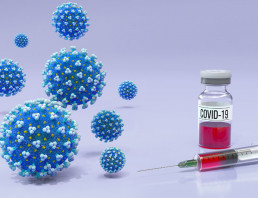COVID and Children
MIS-C stands for multi-system inflammatory syndrome. Per the CDC it is a rare but severe condition that is reported around 2 to 4 weeks after the onset of COVID-19 in children and adolescents.
The condition is serious as the features include shock (with cardiac involvement), GI symptoms and significantly elevated markers of inflammation. Inflammation may include the heart, lungs, kidneys, brain, skin, eyes and GI organs. Symptoms may also include a prolonged fever, rash, and evidence of COVID. Per the CDC the cause of MIS-C is unknown, however many children that had MIS-C tested positive for COVID-19.
Parents and clinicians should keep an eye on all children diagnosed or having symptoms of COVID, as MIS-C may not appear until weeks after being infected.
In April 2020 a cluster of children in Europe were reported to have hyperinflammatory shock with features similar to Kawasaki disease and toxic shock syndrome. As of July 29, 2020, there were a total of 570 MIS-C cases reported to the state health departments. Out of the 570 patients 10 patients were reported to have died.
In addition, based on an analysis published by the CDC, the cumulative rate of COVID-19 associated hospitalizations among children (8 per 100,0000) has been low compared to adults (164.5). However, one in three hospitalized children were admitted to an intensive care unit.
This new emerging data means children are not immune to COVID-19. Caution should be taken not only with adults and children with underlying conditions, but everyone of all ages, regardless of underlying conditions. Call your provider if you come in contact with anyone with COVID or develop any symptoms.
References:
- https://www.cdc.gov/coronavirus/2019-ncov/daily-life-coping/children/mis-c.html. Accessed on August 11, 2020
- https://www.cdc.gov/mmwr/volumes/69/wr/mm6932e2.htm. Accessed on August 11, 2020
- https://www.cdc.gov/mmwr/volumes/69/wr/mm6932e3.htm?s Accessed on August 11, 2020
T-Cell Response vs Antibody Response
The differences between the potential covid-19 vaccines
In July the University of Oxford in collaboration with AstraZeneca released that their potential COVID vaccine produced both a T cell and antibody response in clinical trials. So, what does a T cell and antibody response mean and why does this distinguish the potential vaccine among others?
Well the trial involved 1,077 people who were administered the potential vaccine and resulted in the body making antibodies and T cells to help fight the coronavirus. The vaccine was made from a genetically engineered virus that causes the common cold in chimpanzees. It has been modified by transferring the genetic instructions for the coronavirus “spike protein” to the vaccine, with the hopes that this will teach the body to react against a real infection. This vaccine shows great promise since it induces both an antibody response and T cell response.
So, what does an antibody and t cell response mean?
Initially the focus for COVID treatment and the development of a vaccine has been on the body making antibodies. This is the idea behind convalescent plasma blood donors.
Other companies that are working to develop a COVID-19 vaccine including, Moderna and Biontech/Pfizer, published data demonstrating the body produced neutralizing antibodies, with little said about T cell response. Now we are learning that some of the vaccines in clinical trials are producing both antibodies and T cells raising the questions to which vaccine may produce better immunity.
Antibodies are small proteins made by the immune system that stick onto the surface of the viruses. These proteins can recognize the virus and sometimes be neutralizing antibodies that inactivate the viral particles.
T cells are a type of white blood cell that help coordinate the immune system and are able to spot which of the body’s cells have been infected and destroy them. They can also promote other immune responses, including antibody production.
Nearly all effective vaccines are able to induce both an antibody and a T-cell response. It has also been speculated that specifically to prevent severe COVID-19 infections the body will need to produce a long-lasting effect that will involve both a cellular immunity (T cell ) and humoral immunity (antibody-based).
We still do not have a vaccine on the market for COVID. Vaccines are in clinical trials with promising results. My personal prediction is if any of the vaccines are approved to be effective and safe, we may have multiple vaccines on the market that each work differently.
We strive to keep you posted on the ever-changing topic of COVID-19. Check our webpage daily and subscribe to our newsletter to be the first to know of new information that we post.
References
- https://www.bbc.com/news/uk-53469839Accessed on July 26, 2020
- https://www.evaluate.com/vantage/articles/news/trial-results/covid-19-vaccine-contest-turns-t-cell-responses. Accessed on July 26, 2020

